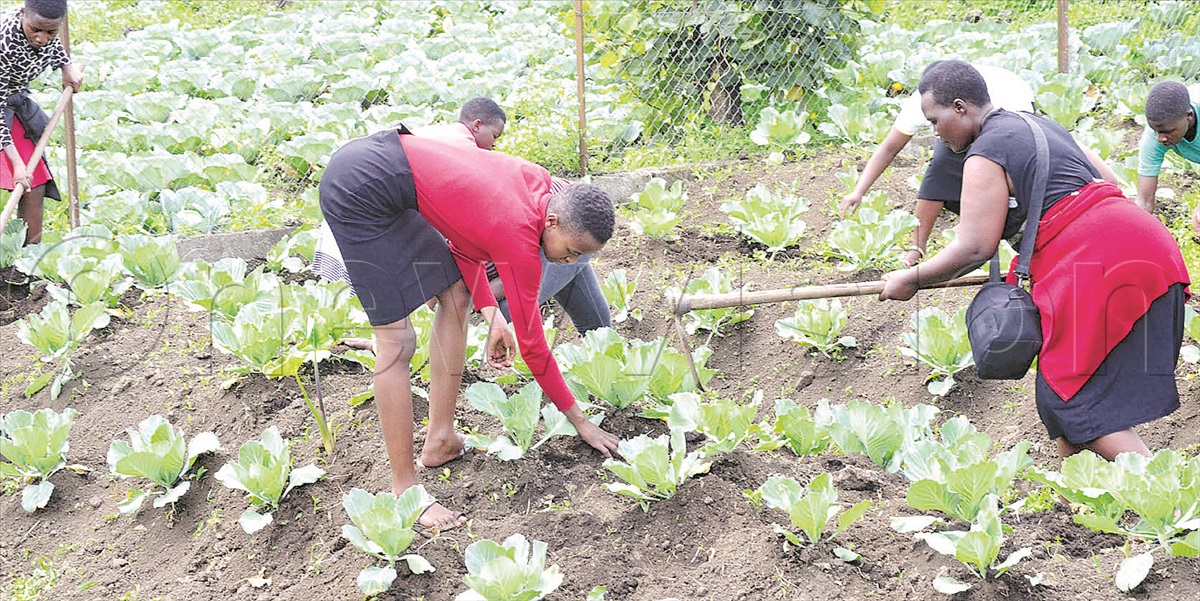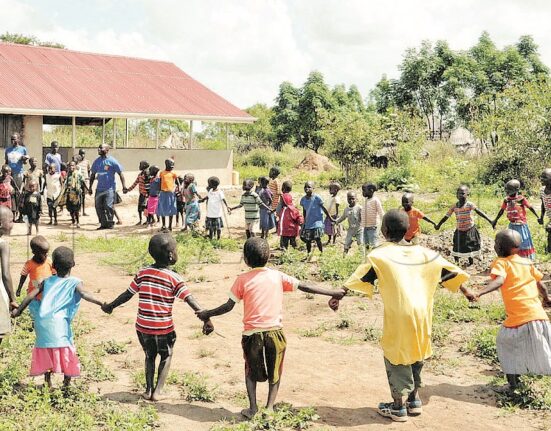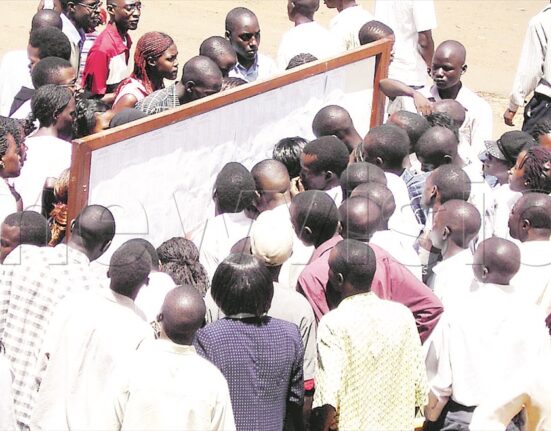(This article was first published in the New Vision on August 24, 2022)
By Stephen Nuwagira
Lillian Dusingize, 16, moves a lever on a hair clipper back and forth to adjust its blades as another girl sits at the table in front of her. She combs the girl’s hair forward with a brush with one hand as the other switches on the clipper.
She raises the clipper to the girl’s head and guides its blades through her hair. As the strands of the girl’s hair fall onto the concrete veranda of the dining hall at Seseme Girls Secondary School in Kisoro Municipality, more girls sit at the tables nearby. They are here to have their hair cut by Dusingize.
The Senior Three student is one of the two girls who have distinguished themselves as barbers at the school, after learning how to cut hair recently.
Dusingize says she learnt to cut hair during the COVID-19 lockdown when schools were closed.
“I used to cut my brother’s hair under guidance of the barbers in my dad’s salon,” she adds.
Florence Kabageni, 17, a Senior Four student, says she also picked up the skill as she watched the barbers at the school, which has a population of 485 students, before the lockdown.
Dusingize and Kabageni have now replaced the barbers the school used to invite to cut the girls’ hair. The two girls have turned haircutting into a business for their Straight Talk Club.
“We decided to make haircutting affordable for the girls because we have the skills,” Dusingize says. The girls charge sh500 for a haircut, which is half the amount the barbers charge. The club acquired a second-hand clipper at sh140,000 to start the business last term.
Dusingize says they earned the money from the sale of their beans and cabbages which they started growing in 2019. By the end of the term, the club earned sh20,000 from haircuts.
The girls have transformed the club, which was previously concerned with providing girls with tips on sex and reproductive health issues, into a business and skills dispensing institution.
Cabbage Business
The club, which comprises 30 members, is running a vegetable growing project on an acre of the school land. The girls, according to their club’s patron, Jasper Twubahe, who is the school’s deputy headteacher, used sh100,000 to buy cabbage planting materials and pay the workers who did the first tilling of the land.
In 2021, they sold part of it to Muhabura Anglican Youth Mission and buyers in the Kisoro market, earning sh115,000. They donated part of it to the school. The girls used the sh100,000 given to them by the Straight Talk Foundation and the school to prepare a drama skit as part of the investment capital for the cabbage business.
The club’s president, Kedress Twizerimana, says they used costumes and props made from their clothes to perform the drama skit.
The club says it earned sh100,000 from the sale of beans from their garden during the lockdown. With proceeds from their agricultural businesses, they bought a haircut clipper at sh140,000, giving birth to the salon business the last term. The club has also ventured into growing potatoes, fruits, spinach, bananas, eggplants, and shoe mending business to diversify revenue sources.
“We do not want to put all our eggs in one basket,” Twubahe says.

Shoe Repair
Mercy Atwongeire, 16, a Senior Three student, who leads the club’s shoe mending business, which launched in 2020, says she learnt to repair the footwear from a cobbler in her village.
“I also asked the cobbler to show how he handles his tools in 2019. I bought the needle at sh500 and brought it to school in the first term of 2022,” she adds. Atwongeire says she realised that the business was promising after seeing the students travelling to Kisoro town over the weekends to get their shoes repaired.
“I sold the idea to the club patron and the school allowed me to start the business. We now repair shoes at school at between sh300 and sh500 per pair,” Atwongeire, who has taught six students to mend shoes, says.

Avocado Powder
Esther Tugumisirize, a Senior Three student, leads the club’s avocado powder-making enterprise. She collects and dries in the sun the seeds disposed of by the students at the school. Once they are dry, Tugumisirize rubs the seeds against mathematical sets riddled with holes to break them down into small particles.
“I sell these particles to buyers who grind them into powder and sell them to people, especially those with heart conditions. They use it instead of tea leaves (to make hot drinks),” she says.
The girls sell a 500gm tin containing this product for sh5,000.
Benefits
The club spent proceeds from the cabbage sales on scholastic materials, such as pens, mathematical sets, and pencils for Senior Four students.
“We also bought soap, toothpaste, and jellies for the students who did not have such items,” Blessed Dukundane, the club treasurer, says. When the girls first conceived the business ideas, according to their patron, none of them knew that the businesses would contribute to “holistic” learning and provision of scholastic materials to other students.
“The club is equipping us with the knowledge to face the world after school,” Tugumisirize adds.
Kabageni and Dusingize say they have already started building their individual salons. “I borrow a clipper from a barber in the neighbourhood to trim children’s hair in my village during holidays,” Kabageni says. “I am saving money to buy mine (clipper),”
“By the time they complete school, many of them will have started businesses in their communities to build on what they are doing for the club,” Twubahe says.
Profit Ishimwe, also a club member, says, over the lockdown period, she sewed four sweaters, which she sold to Mothercare Primary School in Kisoro at sh25,000 each.
Peace Ruzaza, the headteacher, says the club benefited from the skills and career talks the school usually holds for successful individuals in various trades to share ideas with the students. She says the projects are aiding the school to implement the new curriculum.
Plans
The club’s president, Kedress Twizerimana, says members will continue to meet regularly, to review the projects’ implementation levels and consider new business ideas. While the club would like to make more money from its businesses, its members say their initiatives are mostly designed to pass on skills to students.
Services like shoe repairs and haircuts are subsidised, says Twizerimana.
Going forward, the club plans to carry out outreaches in the community to inspire people to develop projects to improve their wellbeing. The club, which plans to develop its organic manure production project, says it wants the school to be a demonstration centre for students’ projects. With these projects, Twizerimana says their school will have a significant impact on the community.
Tips
- Have patience and stay positive
- Put your best effort into what you are doing
- Create time for clients to learn practical skills
- Be honest and have financial discipline
- Stick to your dreams









Leave feedback about this